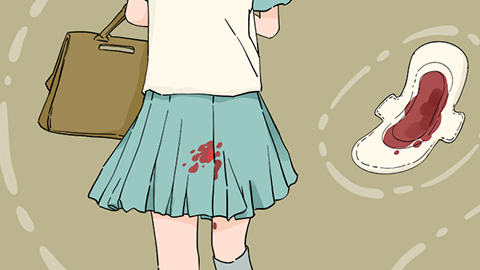Why does menstruation last for more than ten days without stopping, and what should I do?
Generally, "daima" (a colloquial term for menstruation) refers to a woman's menstrual period. If menstruation lasts for more than ten days without stopping, it may be related to不良生活习惯 (unhealthy lifestyle habits), medication effects, endocrine disorders, endometritis, or uterine fibroids. It is recommended to seek timely medical attention and follow a doctor's guidance for treatment, which may include general therapy or medication. Detailed explanations are as follows:

1. Unhealthy Lifestyle Habits
Excessive dieting, strenuous exercise, and staying up late may lead to malnutrition and metabolic disorders, thereby affecting the menstrual cycle and duration. It is recommended to improve lifestyle habits and avoid excessive dieting and intense physical activity.
2. Medication Effects
Blood circulation-promoting medications and contraceptives may affect hormone levels in the body, leading to poor uterine contraction and prolonged menstrual periods. It is recommended to communicate with a doctor promptly about possibly discontinuing or switching medications.
3. Endocrine Disorders
Endocrine disorders may be caused by environmental and emotional factors. Hormonal imbalances may result in insufficient secretion of estrogen or progesterone, preventing the endometrium from fully repairing or shedding, thus prolonging the menstrual period. This is often accompanied by symptoms such as a dark complexion, obesity, and breast hyperplasia. Treatment typically involves medications such as Xiaoyao Pills, Wuji Baifeng Pills, and Tanshinone Injection, as directed by a physician.
4. Endometritis
Endometritis may be caused by pathogens such as bacteria or viruses. Inflammation can lead to irregular shedding of the endometrium, prolonging the menstrual period. It is often accompanied by symptoms such as increased vaginal discharge, dysmenorrhea, and pelvic pain. Treatment may involve medications such as Cefuroxime Sodium Injection, Azithromycin Dispersible Tablets, and Tinidazole Injection, under a doctor's guidance.
5. Uterine Fibroids
Uterine fibroids are benign growths originating from uterine smooth muscle tissue. Fibroids may increase the surface area of the endometrium, impair uterine contraction, and keep the blood sinuses open, thereby prolonging menstrual periods. Other symptoms may include increased vaginal discharge, difficulty urinating, and lower abdominal pressure. Treatment may involve medications such as Duanxueliu Capsules, Mifepristone Tablets, and Guizhi Fuling Capsules, as directed by a physician.
In daily life, it is important to adjust lifestyle habits, maintain a balanced diet, engage in moderate physical exercise, and avoid excessive dieting, binge eating, and strenuous activity to maintain overall health.







